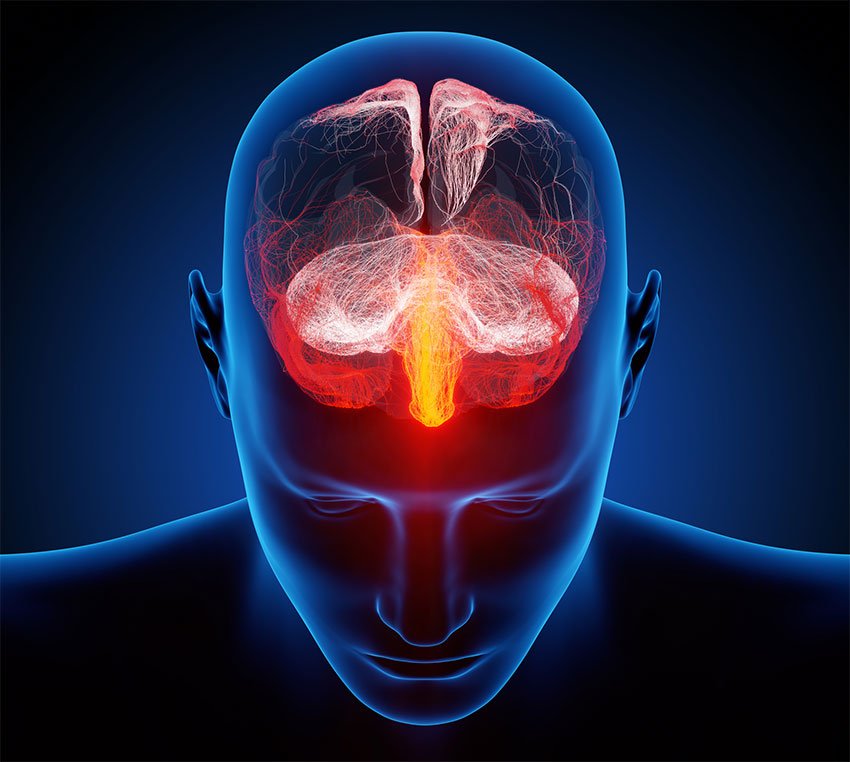Chronic Pain on the Brain: 4 Psychological Effects of Living With Pain
When a person is suffering with chronic pain, it can affect every aspect of his or her life. It can sometimes start out like a pebble in one’s shoe, only to become a thorn, or piece of glass—depending on the intensity. The difference is that when there’s a foreign object in our shoe, it’s easy to take the shoe off and remove it. Yet when it comes to living with pain, it’s much more difficult to treat than removing a pebble from a shoe. The constant suffering can affect a person’s mentality in a number of different ways. It can influence thoughts, feelings, sleep patterns, memory, concentration, and even connections with others.
How the Brain Processes Pain
 The effects of persistent pain may sound intense, far reaching, and perhaps even exaggerated; but those who experience it truly understand just how debilitating it can be. Research covering the different ways the brain processes pain show us that the brain reacts differently to short-term pain than it does to long-lasting pain. When the body experiences the latter, it can change the central nervous system (CNS), and influence sensory, emotional, and modular circuits that would otherwise inhibit pain. Chronic pain is now looked at as a neurological disease of its own—comorbid with symptoms of anxiety and depression. This is due to the altered cognitive and emotional states by the CNS. This means that the longer pain exists, the greater it becomes, and the more prone to feelings of fear, anxiety, and depression a person will be. Constant, debilitating pain can truly interfere with a person’s life.
The effects of persistent pain may sound intense, far reaching, and perhaps even exaggerated; but those who experience it truly understand just how debilitating it can be. Research covering the different ways the brain processes pain show us that the brain reacts differently to short-term pain than it does to long-lasting pain. When the body experiences the latter, it can change the central nervous system (CNS), and influence sensory, emotional, and modular circuits that would otherwise inhibit pain. Chronic pain is now looked at as a neurological disease of its own—comorbid with symptoms of anxiety and depression. This is due to the altered cognitive and emotional states by the CNS. This means that the longer pain exists, the greater it becomes, and the more prone to feelings of fear, anxiety, and depression a person will be. Constant, debilitating pain can truly interfere with a person’s life.
1. How Pain Affects Mood
Unfortunately, living with pain can affect a person’s mood by making someone more susceptible to emotional changes that can foster depression, anxiety, and fear. Such mood disorders can also promote a person’s dependence on prescription medications designed to treat the pain, such as opioids. The more scared, alone or sadness they feel, the more likely they are abuse certain medications, which temporarily mask the pain by providing a “euphoric” feeling. However, when these effects wear off, the sense of hopelessness and discomfort return, so this can soon develop into a vicious cycle.
2. How Pain Affects Sleep
In addition to changes in a person’s mood, living with pain can seriously disturb a person’s sleep patterns. It’s often difficult for a person to fall asleep, and remain asleep for an entire 7-9 hours when they’re experiencing unrelenting or sporadic pain. According to the National Sleep Foundation, an estimated 21% of Americans experience chronic pain—causing each sufferer a 42 minute sleep deficit (on average) per night.
3. How Pain Affects Memory and Concentration
A study conducted by the University of Alberta shows that pain not only affects one’s physical, emotional, and mental states, but it can also affect a person’s memory and concentration. It interferes with the memory trace needed to hold information for processing, and long-term storage. This affects not only one’s ability to remember, but also to concentrate and focus in the moment.
4. How Pain Affects Relationships
It’s no secret that the side effects of living with pain reach over into a person’s personal relationships with coworkers, family, and friends. The physical limitations that develop, as well as one’s tendency to be less patient while in pain can limit one’s ability to interact and empathize with others. This can lead to interruptions in one’s social life, as a person may be more inclined to stay at home instead of going out in public. It can also interfere with sexual relationships, household or on-the-job tasks, parenting, and interacting with children.
****
Living with pain is a constant battle to fight the physical discomfort as well as the mental and emotional side effects it causes. Trying to attack all symptoms at once can seem overwhelming. But with support of family, friends, and the proper medical care, hope for a life with less pain is possible. Ask your doctor about alternative pain treatments, other than prescription medications, that can provide enough relief to maintain regular sleep habits, and re-engage in everyday tasks. You can also look into available support groups for emotional encouragement, and reach out to family, friends and acquaintances for relationship stability.
You may also like:
Chronic Opioid Use for Pain Management – How it REALLY Affects the Body